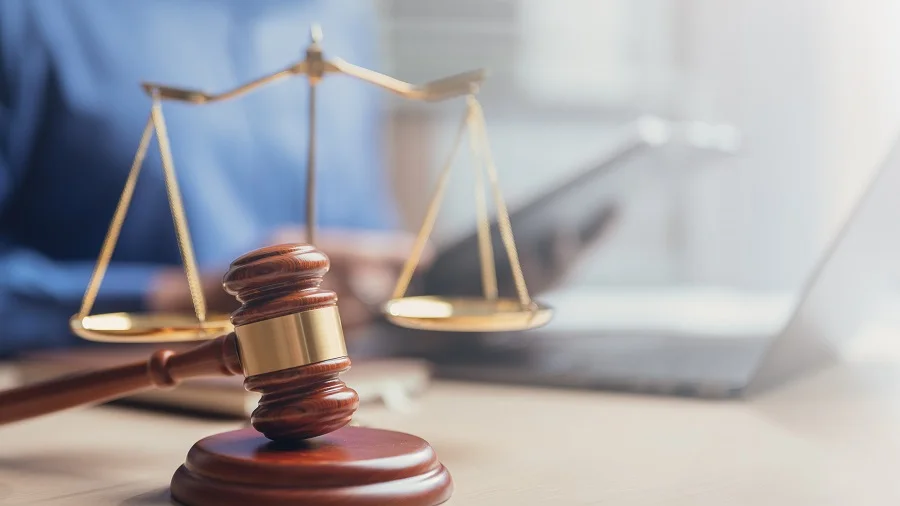A deposition can feel like stepping into the spotlight without a script. One wrong answer, one inconsistent detail, and your entire personal injury case could shift against you.
If you're working with NYC personal injury lawyers, our team at Sakkas, Cahn & Weiss, LLP will prepare you for this moment. This article walks through what happens during a plaintiff's deposition, how it impacts your lawsuit, and what you can do to protect your claim.
NYC Deposition in a Lawsuit
So, let’s first discuss the term deposition, also called an EBT (examination before trial) and known as an examination under oath. A deposition is sworn testimony given outside the courtroom, usually in a law office. It's part of the discovery process where both sides gather information before trial. You'll answer questions under oath while a court reporter creates a written transcript of everything said.
It’s an opportunity for the other side to take your testimony under oath. A court reporter takes down every word you say, and your testimony then gets reduced to a written transcript. Why? Because if you are unavailable at the time of trial (in a coma, jail, or deceased), the testimony will be put into evidence and read to a jury so that they can hear your description of the events. However, if you are available at trial, and you testify, this same document will also be used to cross-examine you and destroy your credibility if you change your story between the time you gave your deposition and the trial.
Who Attends Your Deposition?

Several people will be in the room during your testimony:
- You (the deponent): The person giving sworn testimony about the incident and injuries.
- Your attorney: Present to protect your rights and object to improper questions.
- Opposing counsel: The other side's lawyer who'll ask most of the questions.
- Court reporter: Creates a certified transcript of the entire deposition.
- Defense representatives: Sometimes, insurance adjusters or defendants attend to observe.
In some cases, depositions are videotaped in addition to the written transcript. This footage can be shown to a jury if your case goes to trial.
When Depositions Happen in Personal Injury Cases
Most depositions occur during the discovery phase, typically 6 to 12 months after filing your lawsuit. The timing depends on court schedules, case complexity, and how quickly both sides exchange information.
Your deposition usually comes after you've completed (or nearly completed) medical treatment. This allows opposing counsel to ask detailed questions about your recovery, ongoing symptoms, and how injuries affect your daily life.
How Your NYC Deposition Affects Settlement Value
Your testimony directly impacts what insurers are willing to pay. A strong, consistent deposition strengthens your position. A weak one gives the defense ammunition to reduce their offer.
What Happens During the Deposition Process

The deposition follows a structured format, though the atmosphere feels less formal than a courtroom. You'll sit at a conference table while lawyers ask questions and the court reporter records everything.
Opening Procedures
The court reporter will swear you in, requiring you to tell the truth. Your attorney may make brief opening remarks explaining the rules of the deposition. Then, opposing counsel begins questioning.
Most depositions last 2 to 4 hours, though complex cases can run seven hours or more. You're entitled to breaks, but avoid discussing your testimony during these pauses.
Types of Deposition Questions You'll Face
Background Information
Expect questions about your education, work history, prior injuries, and medical conditions. The opposing attorney wants a complete picture of your life before the accident.
Accident Details
You'll walk through exactly what happened, including the five W’s — who, what, where, when, and why. You’ll be asked where you were, what you saw, and what you did. These questions test whether your story matches police reports and witness statements.
Injury and Treatment History
Detailed questions cover every doctor visit, diagnosis, treatment, and current symptom. Bring a list of all medical providers if you need help remembering. In medical malpractice cases, testimony about treatment is especially significant.
Impact on Daily Life
How has the injury changed your routine? What activities can't you do anymore? These questions address non-economic damages, such as pain and suffering.
Objections During Testimony
Your attorney will object to certain questions, but you'll still need to answer most of them. Common deposition objections include questions that are vague, compound, or ask you to speculate.
The objections get preserved in the deposition transcript and can be raised again in court. They don't mean you refuse to answer — they just protect the record for later use.
How to Prepare for Your Deposition

Preparation makes the difference between a deposition that strengthens your case and one that undermines it. Your attorney will guide you through specific strategies, but these fundamentals apply to all personal injury depositions.
Review Your Case File Thoroughly
Refresh your memory about the accident, medical treatment, and how injuries affected your life. Read through accident reports, medical records, and any statements you've already given.
Create a timeline of events from the incident through your current condition. This helps you answer questions chronologically without getting confused about dates or sequences. In workplace injury cases, documenting safety violations becomes particularly important.
Practice Common Questions
Your attorney should conduct a mock deposition, asking typical questions you'll face. This practice reduces anxiety and helps you develop clear, concise answers.
Focus on staying calm and taking your time. There's no prize for quick responses. Thoughtful, accurate answers serve you better than rushed ones.
Know What Not to Say
Certain phrases can damage your case even if they seem harmless:
- "I think" or "maybe": These words suggest uncertainty. If you're sure about something, state it directly. If you're not sure, say you don't remember.
- "Always" or "never": Absolute statements are easy to contradict. Stick to what actually happened rather than making sweeping claims.
- Jokes or sarcasm: Tone doesn't translate well in transcripts. What seems funny in person can read as dismissive or untruthful on paper.
- Answer only the question asked: This means focus on the specific question asked of you and only provide a truthful answer. Then stop talking. You don’t have to speak beyond that and give too much information. Often, people risk rambling when answering questions.
Your Rights During a Deposition
You have legal protections even though depositions occur outside the courtroom. Your attorney ensures these rights are respected throughout the process.
You can refuse to answer certain questions if they invade attorney-client privilege, demand protected medical information beyond what's relevant to your case, or require you to speculate about facts you don't know.
You can request breaks when you need them, though you shouldn't discuss your testimony with anyone during these pauses. Medical conditions or reasonable fatigue are valid reasons for breaks.
You can clarify answers if you realize you've misstated something or need to correct an earlier response. Tell the court reporter you want to change a previous answer and provide the correct information.
Can Settlement Happen at a Deposition?
While depositions primarily serve as discovery tools, they sometimes trigger immediate settlement discussions. A particularly strong or weak deposition performance can shift both parties' calculation of trial risks.
However, formal settlement negotiations typically occur separately from the deposition itself. The testimony provides information that shapes later settlement talks rather than resolving the case on the spot.

What Happens After Your Deposition
Once testimony wraps up, several things occur behind the scenes that affect your case outcome.
Protect Your Case with Experienced Legal Support
Your deposition shapes how insurance companies view your claim and what they're willing to pay. Consistent, well-prepared testimony can significantly enhance the value of a settlement.
At Sakkas, Cahn & Weiss, LLP, our NYC personal injury attorneys prepare clients thoroughly for depositions. We review your case history, conduct practice sessions, and stand beside you throughout the testimony to protect your rights. Contact us today to schedule your free consultation. We work on a contingency basis, so you pay nothing unless we win your case.


Don't Face Your Deposition Unprepared
One inconsistent answer can reduce your settlement by thousands. Our NYC personal injury lawyers conduct practice sessions and protect your rights throughout testimony.
.svg)

.webp)